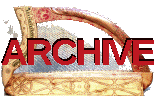
|
Building a library for Gaelic harp reading... what course of action is really desirable save having a copy of every book ever published on the subject? But some books are really more "essential" than others.
Rare and otherwise unavailable Gaelic harp and related books are now available to purchase from this website. Please visit the Emporium pages for more details.

The November 2008 issue of the scholarly journal Early Music published by Oxford University Press, contains my article 'The Early Irish Harp' which gives a broad and accessible overview of the entire subject. The article includes colour and b/w photos of some of the extant instruments and the cover of the issue continues the theme with a photo of the Trinity College Harp. The other articles in the issue are unrelated, covering Monteverdi etc.

Ann Heymann's tutor books are indispensable. First Tunes is simpler, and gives a complete account of the techniques; Coupled Hands assumes some knowledge of Gaelic harp technique but explains Ann's idiomatic style with almost 100 tunes. I have written a tutor book, Progressive Lessons for Early Gaelic Harp.
Moving further, Edward Bunting's work is key to understanding the music, but the piano settings in his published books are of no use; we need to work with the evidence preserved in his unpublished manuscripts. Donal O'Sullivan's editions are the easiest way to approach these, though any serious Gaelic harp student or scholar needs to get hold of a facsimile of ms29 and Collette Moloney's index.

It's also good to have some understanding of the history and culture surrounding the instrument as well. There is no accessible general history of the Gaelic harp; it has only been dealt with from a national perspective. Keith Sanger and Alison Kinnaird's Tree of Strings covers the Scottish side of things very comprehensively, if rather too densely to be an easy read. By contrast, Nora Joan Clarke's Story of the Irish Harp is very accessible but misses out the fine detail. Both books also discuss the 19th century gut-strung lever harp which, though unrelated to the old Gaelic harp, is the dominant harp tradition in both Ireland and Scotland today.
Please do get in touch and let me know what you think of these books; also if there are any that have been missed off these lists!
Simon Chadwick